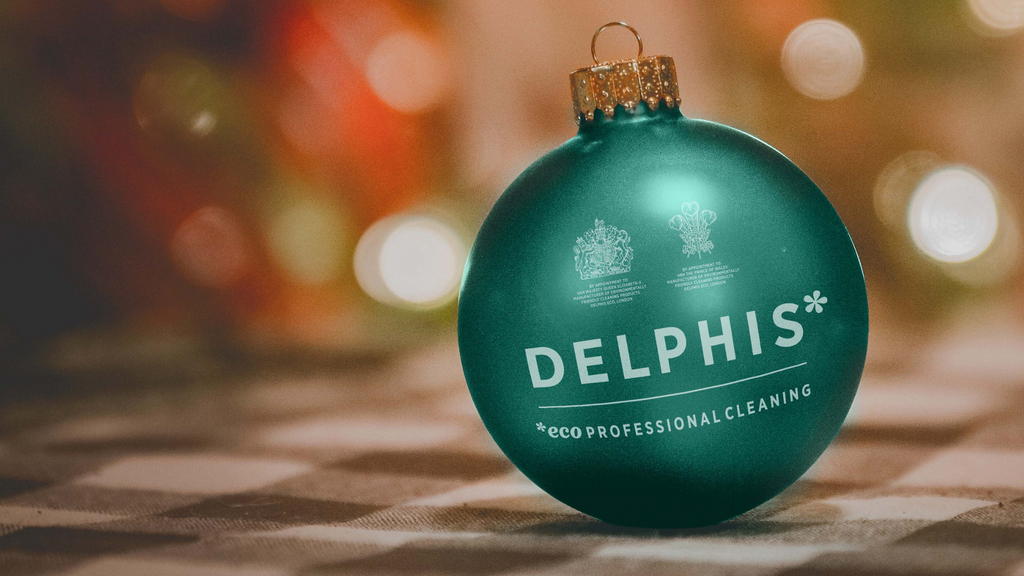The Environmental Impact of Christmas

Christmas is also a time for reflection, for relaxation... and a lot of good food. After a busy year - and especially a difficult year like 2021, with the pandemic still very present in our lives - it’s important to have something good to look out for. We all deserve to eat our own body weight in stuffing or pudding and focus on our loved ones, so the environment moves to the back of our minds.
With Christmas being celebrated by over 25 million households across the UK alone, the festive season has a palpable ecological impact. But how bad is it really?
The Impact of presents
Christmas is one of the busiest times of the year. Businesses outbid each other with holiday sales and festive bundles in a race for hard-saved cash, and we all want to put a smile on our loved ones' faces with the perfect present.
In the UK, a typical household spends £2500 on average each month. The Bank of England has calculated that in December, people spend 29% (or £740) more than in any other month.
Remember all the socks and clothing you kept getting as a kid? According to the Bank of England, most of our extra Christmas spend goes out for clothing and textiles, followed by furniture and specialist food stores.
We all know what impact consumerism has. With more money being spend on clothing, the consequences for the environmental caused by the fast fashion industry will only get worse. Similarly, toys made from plastic and all kinds of packaging are taking their toll on our fight against plastic pollution: wrapping paper alone accounts for 227 000 miles of paper waste, which, if rolled out, would almost take us to the moon. Who needs rockets if we've got fancy paper, eh?
The impact of food
For many families, the Christmas dinner is the heart of the festivities. It’s a time where we all come together, which is even more special after all the months we had to spend apart. Great food is central to an amazing dinner, but depending on what you munch, the environment may take a serious hit.
The consumption of animal products - especially meat - goes up significantly, with many families gathering around a turkey on Christmas Day. In 2020, 16 million Turkeys have landed on our plates, with the majority of them - a whopping 10 million - filling our ovens on Christmas.

However, not just food consumption goes up, but leftovers often fall victim of being thrown out. On average, our waste production increases by 30% and accounts for about 10% of the carbon emissions emitted during the festive season.
'Christmas festivities could release as much as 650kg of carbon dioxide emissions per person.'*
The impact of Christmas trees
Roughly 55 million trees are cut down for Christmas every in Europe. 55 million trees who, after a few weeks, are thrown out and land in the next best dumpsters.
The impact of Christmas trees is massive: although they’re helping reducing carbon emissions for the duration of their growth until they reach a pretty and decorable height, the planet is loosing out on all the additional savings if we’d just let them be.

Then there’s additional carbon emissions for transporting the trees to resellers, and once more from your local tree vendor to your living room. Some species are even endangered, facing extinction due to both deforestation and climate change.
But you don’t have to miss out on Christmas trees completely! Alternatives are coming, like renting a Christmas tree that returns to its forest after the festive season.
Overall carbon emissions
We’re buying more, we’re eating more, we’re cutting down trees and cover them in plastic decoration to dress up our living room for a couple o' weeks. All in all, our carbon footprint tends to be 6% higher than compared with the rest of the year.
Needless to say, that's a LOT of carbon emissions reaching our atmosphere every Christmas. But, good news! There are many easy ways to reduce your own carbon footprint at Christmas with just a few little tweaks: rent your tree instead of having it cut down, reduce your meat consumption, avoid plastic decoration, packaging and toys.
We don't need to renounce all our favourite Christmas traditions, but we can make it worthwhile for our planet.
*According to a study by the Stockholm Environment Institute, University of York

Leave a comment